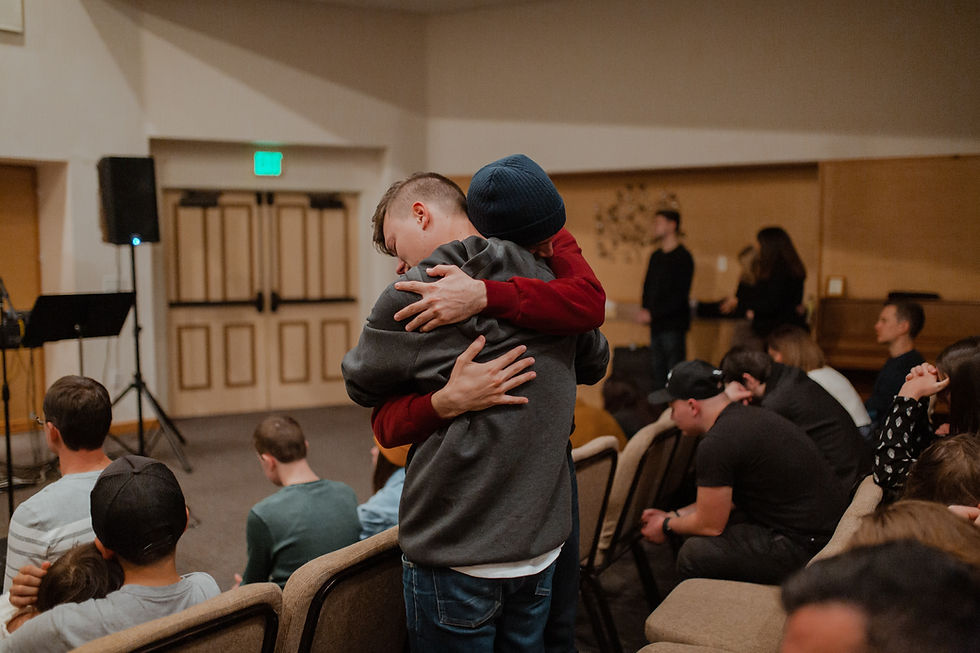Toward a Christian View of Personal Reconciliation
- Skyler Gerald
- Nov 26, 2023
- 4 min read

Forgiveness lies at the heart of the Christian religion. Every Christian has been forgiven. Redemption is forgiveness as Paul himself says in Eph 1:5, "In him we have redemption through his blood, the forgiveness of our trespasses, according to the riches of his grace,". Jesus Christ alone accomplished and merited the forgiveness of sins for all those who receive him by faith. And this reality has serious practical implications as Paul notes in the very same letter. He writes, "Be kind to one another, tenderhearted, forgiving one another, as God in Christ forgave you." (Eph 4:15, cf. Col 3:13) The one who was been forgiven much should forgive much himself.
Now, that's all well and good in the idea realm but what does it practically mean to forgive someone? And what does it mean to be reconciled, as we often speak of it? To no surprise, the Bible affords us some principles for understanding this very thing.
Distinguishing Forgiveness and Reconciliation
Now it must be understood that the concepts of forgiveness and reconciliation are not one in the same thing. Where the term forgiveness (and all the corresponding words) show up numerous times in the Bible, reconciliation is very seldom employed. Forgiveness involves a dismissal of one's offenses from their record. That is what the terms means both in the theological sense (namely, our being forgiven by God) and in the interpersonal ethical sense (namely, our forgiving others). Forgiveness is an act that depends only on the party offended. Only they can forgive the offense in the truest sense of the term.
Reconciliation, on the other hand, is a matter that involves both the party offended and the offending party. In the theological sense, the term reconciliation typically has to do with the act of a third party. That is, Christ reconciled us to God in his death on the cross in the sense that he established the one and only means whereby someone can be reconciled to God — by his blood (Rom 5:10). In the interpersonal ethical sense, it involves the mending of a ruptured relational bond created by some sin. You can see this sense in three instances in the New Testament — Matt 5:24, Acts 7:26, and 1 Cor 7:11. The two-sided nature of reconciliation is perhaps best displayed in the Acts 7 text. There Stephen reflects on the event of Moses' life where he tried to reconcile two Hebrew slaves fighting each other (cf. Ex 2:13-14). The most natural reading of the Exodus 2 narrative is that Moses' desire was to see the ruptured relational bond mended. He was not simply asking one of them to forgive but both parties were involved. The offended party needed to forgive and the offending party needed to repent.
The Necessity of Repentance and Forgiveness
Herein lies our principle for understanding proper reconciliation. By the account of Exodus 2 we see what reconciliation truly is, namely, the party offending repents and the party offended forgives. And this is the case not only in the interpersonal ethical sphere but also in the theological. True reconciliation for the individual Christian necessarily involves that they repent. Or, what we would call in theological terms, repentance unto life. It is also the case in the interpersonal ethical sphere — true reconciliation must involve forgives and repentance. Now, this may seem like a no-brainer. Yet, this biblical paradigm offers a great deal of clarity in practical situations.
Suppose, for a moment, that a distracted driver flies off the road and hits a person severely injuring them to the point where they are permanently paralyzed from the waist down. Suppose also that both of them are christians. There are four ways that this can play out in terms of their relation to each other:
The driver shows no remorse for his actions and the victim shows no inkling of forgiveness toward the driver.
The driver shows earnest repentance seeking forgiveness from the victim but the victim is not moved and shows no inkling of forgiveness.
The driver shows no remorse for his actions and the victim earnestly forgives the driver.
The driver shows earnest repentance and the victim shows earnest forgiveness.
It is only in the fourth scenario that full reconciliation has taken place. In the first, both are at fault (though we certainly weigh the sin of the driver as more weighty than the sin of unforgiveness on the part of the victim). In the second, only the victim is at fault in why reconciliation cannot take place. Their unwillingness to forgive is getting in the way. In the third, only the driver is at fault in why reconciliation cannot take place. Their unwillingness to repent of their sin is getting in the way.
Certainly any true instance of reconciliation (particularly one to this degree) takes time. Forgiveness takes time and repentance takes time. But this is the goal of reconciliation — repentance and forgiveness.
Freedom from the Burden
Perhaps you're already seeing how freeing such a paradigm is for interpersonal ethics. It can often seem like a great burden when we've done all we can to repent of our sin but they always hold our sin against us. It can seem like a great burden when we have forgiven and want so desperately to see the relationship mended but their hard-heartedness is always in the way. Here's the good news: full reconciliation is not only up to you. The duty of the christian is to repent when they have sinned and forgive when they have been sinned against. We are responsible for potential reconciliation even if actual reconciliation never takes place. In that case, give it to the Lord, the righteous judge. Don't place that burden on yourself







Comments